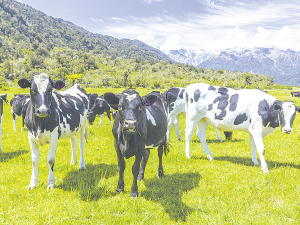Start with the board — Editorial
Why is Fonterra in a pickle? Is the death of democracy and a blob of arrogance in Fonterra to blame for the current crisis?
 The dairy industry has lost its mojo in the last six or seven years, according to a leading dairy farmer, Trevor Hamilton.
The dairy industry has lost its mojo in the last six or seven years, according to a leading dairy farmer, Trevor Hamilton.
The dairy industry has lost its mojo in the last six or seven years, according to a leading dairy farmer, Trevor Hamilton.
He says it appears that many people in the industry today are more interested in having a lifestyle rather than having a strong focus on profitability.
As a result, the corporate farmer believes the industry has gone backwards instead of forwards. He says in his case he looks at his farming operation, which is based in both the North and South Islands, as strictly a business designed to make a profit.
“Dairy farming isn’t a hobby as far as I am concerned,” he says.
Hamilton says there appears to be a lot more focus nowadays on alternative forms of dairy farming such as once-a-day or alternate day milking. He cites regenerative agricultural and organic farming as systems which don’t make dairy farming more profitable.
He says dairy farming is about growing as much pasture as you can and utilising that pasture. He says the evidence in Dairybase states, the more grass you grow, the better you utilise that feed, and add cheaper forms of supplement where necessary, the more profit results.
“But we seem to have been dodging away from that to the extent that profitability is not a high priority in the industry and so the result of that is we are seeing the milk pool in NZ on a gradual decline,” he says.
Hamilton says despite being better educated, some people in the industry don’t seem to embrace the proposition that the only way to grow a business is to be more profitable. He says, if they want help from the banks, they need to meet the expectations of the banks, who ask ‘are you profitable now and what is your strategy to be profitable in the future?’
“The banks think about one thing only – your financials,” he says.
Hamilton says a factor which is creeping into the dairy industry is what he calls ‘add-ons’ – a good example being cow collars. He says it’s interesting that one company has reduced the price of these by 37% recently and he questions whether people buying them are doing so to improve their profitability or for lifestyle reasons.
In his opinion it is quite sad that the industry now needs a payout of more than $8/kgMS to make money. He says a lot of farmers won’t make a profit this year on $8/kgMS and it would be a brave person who thinks the payout will be better next year.
“The industry is marginal and it’s the margin over a milksolid that determines profitability – just like any other business – and not all the addons are profitable,” he says.
Global trade has been thrown into another bout of uncertainty following the overnight ruling by US Supreme Court, striking down President Donald Trump's decision to impose additional tariffs on trading partners.
Controls on the movement of fruit and vegetables in the Auckland suburb of Mt Roskill have been lifted.
Fonterra farmer shareholders and unit holders are in line for another payment in April.
Farmers are being encouraged to take a closer look at the refrigerants running inside their on-farm systems, as international and domestic pressure continues to build on high global warming potential (GWP) 400-series refrigerants.
As expected, Fonterra has lifted its 2025-26 forecast farmgate milk price mid-point to $9.50/kgMS.
Bovonic says a return on investment study has found its automated mastitis detection technology, QuadSense, is delivering financial, labour, and animal-health benefits on New Zealand dairy farms worth an estimated $29,547 per season.